Latest News
16 April 2019
Important subsidy paves way towards emission-free gas turbines
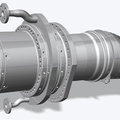
TU Delft and partners Ansaldo Thomassen, OPRA Turbines, Vattenfall, Nouryon and EMMTEC have been awarded with a subsidy by the Dutch Government for the project ‘High Hydrogen Gas Turbine Retrofit to Eliminate Carbon Emissions’.
15 April 2019
Hydrogen car as a power source in a sustainable energy system
Hydrogen cars can act as a buffer in a sustainable energy system. This "Car as Power Plant" concept, initiated by TU Delft’s Professor Ad van Wijk, uses parked fuel cell cars as power stations.
13 April 2019
TU Delft lecturer Calvin Rans the best teacher in the Netherlands
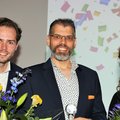
Calvin Rans, assistant professor in the Faculty of Aerospace Engineering and Best Lecturer of TU Delft 2018, has now been voted the best teacher in the Netherlands. The jury praised Rans for his ability to inspire his students and for his continual efforts to improve his lectures. The competition among teachers/lecturers at research universities and universities of applied sciences is an initiative of the Inter-city Student Consultation (Interstedelijk Studenten Overleg, ISO).
11 April 2019
Smart motor in handlebars prevents bicycles from falling over

TU Delft and the bicycle manufacturer Koninklijke Gazelle have developed a prototype of a bike with smart steering assistance that may help to reduce the number of falls with bicycles.
10 April 2019
TU Delft publishes vision on Climate Action
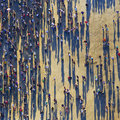
The climate is changing and this is something we shall have to deal with. What TU wants to contribute is written down in a vision paper published today.
10 April 2019
TU Delft cooperates with Vietnam in training water professionals
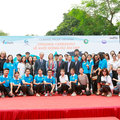
Over the next three years, Delft University of Technology will support Vietnam in training water management professionals. The ‘Climate Proof Vietnam’ programme was officially launched on Wednesday in the Vietnamese capital Hanoi.
04 April 2019
Researchers witness the emergence of a new gene in the lab
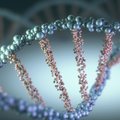
How do new genes appear? For more than a century, researchers have thought that, from time to time, new gene functions evolved after cells accidentally make a copy of one of their existing genes.
28 March 2019
Did Mesdag ‘forget’ to paint part of Scheveningen?
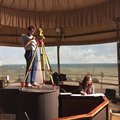
Bij het schilderen van zijn Panorama in 1881, lijkt Hendrik Willem Mesdag een stuk van Scheveningen vergeten te hebben.
28 March 2019
Excellent evaluation report for QuTech
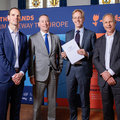
An international review committee, chaired by professor Robbert Dijkgraaf, is ‘unreservedly positive about the success of QuTech in the past, and fully endorses the institute in the years to follow’.
27 March 2019
TU Delft students win second round of GoFly competition

Silverwing, a team of students from TU Delft, is one of the five winners of the second round of the GoFly competition sponsored by Boeing.
